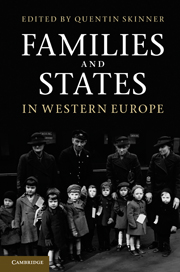1 - A theoretical overview
Published online by Cambridge University Press: 05 June 2012
Summary
What stands between families and states? The conventional answer of modern political theory is civil society: the sphere of voluntary associations and relationships that provides individuals with a means of escape from both the confines of family life and the rigours of state politics. This can be either a descriptive or a normative claim. One of the distinguishing features of modern societies is the sheer scale and variety of civil associations for which they allow, whether in economic life, cultural life, communications, religion, sport or education. That is an observable fact, but it is also often held to be one of the major benefits of modern existence, and hence something to be celebrated and cultivated. We need civil society in order to avoid being trapped in the binary, pre-modern world of household and polis, in which the opportunities for human expression and experimentation are more limited.
Modern civil society is valuable because it helps to take us away from purely private concerns. It offers a route out from family life through to the wider perspectives of social and political justice. In Susan Moller Okin's terms, quoted by Paul Ginsborg in his chapter in this book, we need ‘a continuum of just associations’ in order to ‘enlarge [our] sympathies’. But civil society is also valuable because it can provide some respite from the relentless pressures of public life, organised by and for the state.
- Type
- Chapter
- Information
- Families and States in Western Europe , pp. 1 - 17Publisher: Cambridge University PressPrint publication year: 2011

